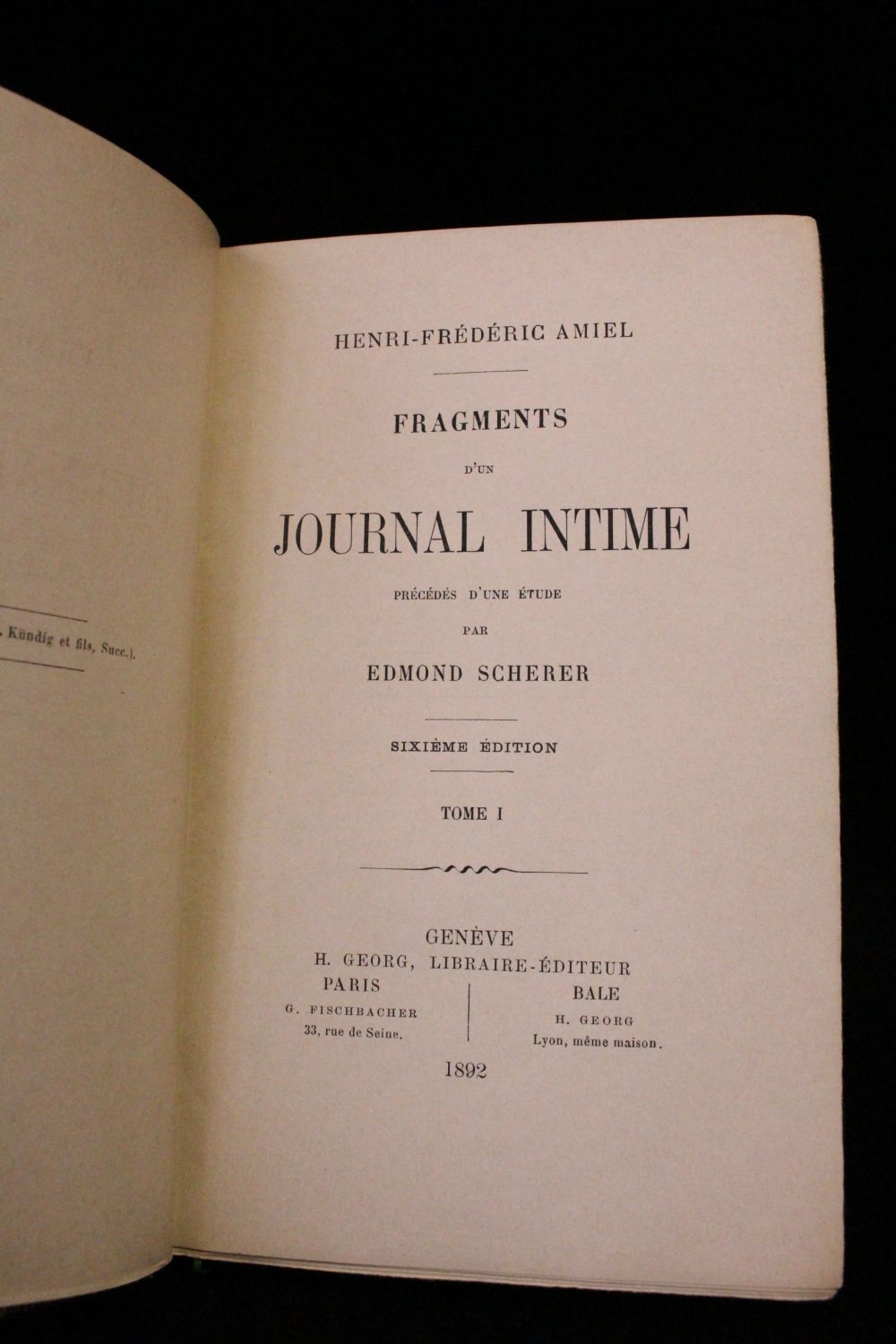

"Depersonalization: a conceptual history". Proche ou lointaine, elle a accompagné Amiel pendant près de trente-trois ans. The French philosopher Ludovic Dugas, in trying to describe a new psychological phenomenon, took the word depersonalization from an entry in his Journal intime, 'Everything is strange to me, I can be outside of my body, of me as an individual, I am depersonalized, detached, away'. ^ Henri Frédéric Amiel, Louise Wyder, Louis Vannieuwenborgh - 2004 Louise Wyder, " Égérie ", est l'une d'entre elles.Eve's Renegades: Victorian Anti-Feminist Women Novelists. This article incorporates text from a publication now in the public domain: Chisholm, Hugh, ed.Henri-Frédéric Amiel - Wikiquote (external link).Amiel's Journal: The Journal Intime of Henri-Frédéric Amiel (1885), trans.Fragments d’un journal intime (1884), 2nd ed.Jean-Jacques Rousseau jugé par les Genevois d’aujourd’hui (1879).L’Enseignement supérieur à Genève depuis la fondation de l’Académie depuis le 5 juin 1559 (1878).Du mouvement littéraire dans la Suisse romane et de son avenir (1849).Berlin au printemps de l’année 1848 (1849).I am not committed to any one in particular". Dugas took this as a literal description, but a few paragraphs later Amiel clarifies: "it seems to me that these mental experiences (transformations mentales) are no more than philosophical experiences. The French philosopher Ludovic Dugas, in trying to describe a new psychological phenomenon, took the word depersonalization from an entry in his Journal intime, "Everything is strange to me, I can be outside of my body, of me as an individual, I am depersonalized, detached, away". His extensive correspondence with Égérie, his muse name for Louise Wyder, was preserved and published in 2004. In addition to the Journal, he produced several volumes of poetry and wrote studies on Erasmus, Madame de Stael and other writers. Īlthough modest in volume of output, Amiel's Journal gained a sympathy that the author had failed to obtain in his life.

It was translated into English by British writer Mary Augusta Ward at the suggestion of academic Mark Pattison. This isolation inspired the one book by which Amiel is still known, the Journal Intime ("Private Journal"), which, published after his death, obtained a European reputation. These appointments, conferred by the democratic party, deprived him of the support of the aristocratic party, whose patronage dominated all the culture of the city. In 1849 he was appointed professor of aesthetics at the academy of Geneva, and in 1854 became professor of moral philosophy. Īfter losing his parents at an early age, Amiel travelled widely, became intimate with the intellectual leaders of Europe, and made a special study of German philosophy in Berlin. Henri Frédéric Amiel ( French pronunciation: 27 September 1821 – ) was a Swiss moral philosopher, poet, and critic.īorn in Geneva in 1821, Amiel was descended from a Huguenot family that moved to Switzerland following the revocation of the Edict of Nantes.


 0 kommentar(er)
0 kommentar(er)
